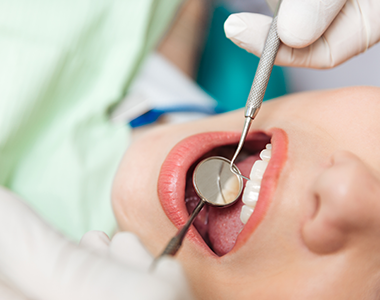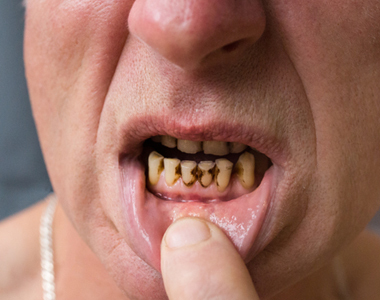
Medications and Oral Health
Category : Gentalcare
Many medications—both those prescribed by your doctor and the ones you buy on your own—affect your oral health.
A common side effect of medications is dry mouth. Saliva helps keep food from collecting around your teeth and neutralizes the acids produced by plaque. These acids have the potential to harm the hard surfaces of your teeth. A dry mouth increases your risk for tooth decay. Your soft oral tissues—gums, cheek lining, tongue—can be affected by medications as well. For example, people with breathing problems often use inhalers. Inhaling medication through your mouth can cause a fungal infection called oral candidiasis. Sometimes called thrush, this infection appears as white spots in your mouth and can be painful. Rinsing your mouth after using your inhaler may prevent this infection.
Cancer treatments might also have an impact on dental health. If at all feasible, consult with your dentist before initiating therapy. The dentist can ensure that your mouth is healthy and, if necessary, can prescribe treatments to help you maintain good oral health. Your dentist also is interested in the medications you are taking because many can affect your dental treatments. Your dentist may want to speak with your physician when planning your treatment. Rare but serious jaw problems also can occur in people who’ve received bone-strengthening drugs to treat cancer and, to a lesser extent, osteoporosis.
These are just a few instances of how medications might have an impact on your dental health. Your dentist must be aware of any medications you are taking in order to give you the finest dental treatment possible. Tell your dentist about your medication use and your overall health, especially if you have had any recent illnesses or have any chronic conditions. Provide a health history including both prescription and over-the-counter products. Always let your dentist know when there are changes in your health or medication use.
Be sure to talk with your dentist about how to properly secure and dispose of any unused, unwanted, or expired medications, especially if there are any children in the household. Also, take the time to talk with your children about the dangers of using prescription drugs for non-medical purposes.
https://www.mouthhealthy.org/en/az-topics/m/medications-and-oral-health

 Review Us
Review Us  Review Us
Review Us 